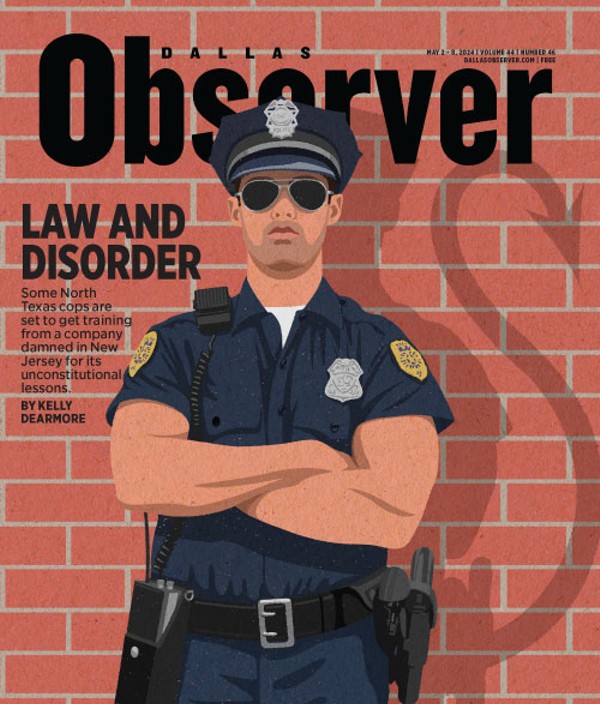Producer Jerry Bruckheimer--whose résumé drips with dim-witted, gold-plated escapism, such as The Rock, Armageddon, Con Air and Gone in 60 Seconds--has always insisted he not only gives audiences what they want but what they didn't even know they craved. For the first time in his career, he's made a major miscalculation: Bad Company is something no one wants or will ever need. It serves no purpose because it offers no context or commentary; it neither entertains nor distracts, and it's so out of touch it seems to exist in a fantasy world altogether--one in which New Yorkers aren't upset at, or even distracted by, the site of a manic Anthony Hopkins and Chris Rock running through Grand Central Station shouting, "Out of my way! CIA!"
To chide Bad Company for making no sense is too redundant; Bruckheimer's films are the cinematic equivalent of a novel with every other page ripped out. Its story doesn't even sound like a real movie but something tossed around in a movie about the ludicrousness of the movie business. Imagine Buck Henry in The Player, shoveling manure to Tim Robbins: Chris Rock plays a CIA agent gone undercover as an antiques dealer who also buys nuclear weapons. (Only the first of copious what-the-hell? moments.) When Rock is killed by rival buyers, CIA agent Anthony Hopkins recruits Rock's streetwise, ticket-scalping, chess-playing twin to seal the deal, with only a week to train. Otherwise, the world goes kablooey when terrorists get hold of the nuke and detonate it God knows where. It's a black-white buddy pic, a thriller-comedy, an actioner--and, by film's end, absolutely nothing at all. (That is the sum of all Hollywood's fears, millions spent adding up to a big zero.)
Shot before September 11, it feels wholly irrelevant; even the jokes are outdated, especially one in which Rock shouts down the head of the CIA by insisting, "You can't even find Saddam Hussein" (it's as though no one has heard of Osama bin Laden). Some lines appear inserted after the fact, perhaps to make it more timely; one character tells Hopkins, "A bomb on American soil--that's what we've always talked about," like the audience needs to be reminded of its deepest fears. Even the villains feel antiquated, though no more than The Sum of All Fears' Nazis: Peter Stormare plays a Russian mobster peddling nukes, and Matthew Marsh (as a character named Dragan) is a Yugoslavian terrorist given to long speeches about the venality of the United States ("You take side in conflicts you know nothing about," he proclaims before trying to destroy Manhattan). There's the occasional nod to current events ("He looks Afghani, sir") but without any pretense of perspective. It smells of last-second desperation--of total give-up.
Bad Company, directed by Joel Schumacher (the man who killed the Batman franchise) and written by a gaggle of hacks, is the first Bruckheimer film to bore the hell out of its audience. (It's also oddly quiet; even its soundtrack plays timid.) Hopkins proves there is indeed a fine line between a character playing weary and an actor growing disinterested; he's so disconnected from his character, Gaylord Oakes, and those around him he appears to be on a different set altogether. (At least Robert Duvall, who occasionally slums it in Bruckheimer pics, gives his all; if he's shameless, then Hopkins is only ashamed.) And Chris Rock, as hustler Jake Hayes, is at his best when mimicking his stand-up act, when joking that "my family was so poor we had to lick postage stamps for food." Here, as in Nurse Betty and Down to Earth, Rock hints there's no substance to his work without the spotlight focused directly on him. He plays every scene so big and broad there's no room for anyone else; he's a ball hog who keeps dropping the rock. If this is supposed to be comedy, why isn't it ever, for one second, funny?
To damn Bad Company as insensitive and empty-headed is, ultimately, to give it too much credit; the filmmakers aren't serious men, and theirs is not a sober movie. It doesn't even make sense, and it apparently knows it: Scenes are bogged down with reams of jargon and gibber jabber, exposition meant to imply great depth but there only to confuse and distract us from the sad reality that in this movie, like most everything else Bruckheimer's ever done, nothing means anything.










